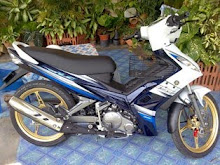0 Commonwealth Games

The Commonwealth Games is an international, multi-sport event involving athletes from the Commonwealth of Nations.
As well as many Olympic sports, the Games also include some sports that are played mainly in Commonwealth countries, such as lawn bowls, rugby sevens and netball.The Games are overseen by the Commonwealth Games Federation (CGF), which also controls the sporting programmed and selects the host cities. The host city is selected from across the Commonwealth, with eighteen cities in seven countries having hosted it.
The event was first held in 1930 under the title of the British Empire Games in Hamilton, Ontario, Canada. The event was renamed as the British Empire and Commonwealth Games in 1954, the British Commonwealth Games in 1970, and gained its current title in 1978. Only six teams have attended every Commonwealth Games: Australia, Canada, England, New Zealand, Scotland and Wales. Australia has been the highest achieving team for ten games, England for seven and Canada for one.
There are currently 54 members of the Commonwealth of Nations, and 71 teams participate in the Games. The four Home Nations of the United Kingdom – England, Scotland, Wales and Northern Ireland – send separate teams to the Commonwealth Games, and individual teams are also sent from the British Crown dependencies of Guernsey, Jersey and the Isle of Man (unlike at the Olympic Games, where the combined "Great Britain" team represents all four home nations and the Crown dependencies). Many of the British overseas territories also send their own teams.
The Australian external territory of Norfolk Island also sends its own team, as do the Cook Islands and Niue, two states in free association with New Zealand. It was reported that Tokelau, another dependency of New Zealand would be sending a team to the 2010 Games in New Delhi, India. In the end however they did not.
The 2010 Commonwealth Games are on in New Delhi, India, until October 14.
Source: Wikipedia.
0 Baba-Nyonya
Peranakan and Baba-Nyonya are terms used for the descendants of late 15th and 16th-century Chinese immigrants to the Nusantara region during the Colonial era. This community in Melaka, they address themselves as "Nyonya Baba" instead of "Baba-Nyonya". Nyonya are for the ladies and Baba are for the gentlemen. It applies especially to the ethnic Chinese populations of the British Straits Settlements of Malaya and the Dutch-controlled island of Java and other locations, who have adopted partially or in full Nusantara customs to be somewhat assimilated into the local communities.
They are the elites of Singapore, more loyal to the British than to China. Most have lived for generations along the straits of Malacca and not all intermarried with the local Malays. They are usually traders, the middleman of the British and the Chinese, or the Chinese and Malays, or vice versa. They almost always have the ability to speak two or more languages. In later generations, some lost the ability to speak Chinese as they became assimilated to the Malay Peninsula's culture and started to speak Malay fluently as a first or second language.
While the term Peranakan is most commonly used among the ethnic Chinese for those of Chinese descent also known as Straits Chinese (土生華人; named after the Straits Settlements), there are also other, comparatively small Peranakan communities, such as Indian Hindu Peranakans (Chitty), Indian Muslim Peranakans (Jawi Pekan) (Jawi being the Javanised Arabic script Pekan a colloquial contraction of Peranakan) and Eurasian Peranakans (Kristang = Christians).
The group has parallels to the Cambodian Hokkien, who are descendents of Hoklo Chinese. They maintained their culture partially despite their native language gradually disappearing a few generations after settlement.





